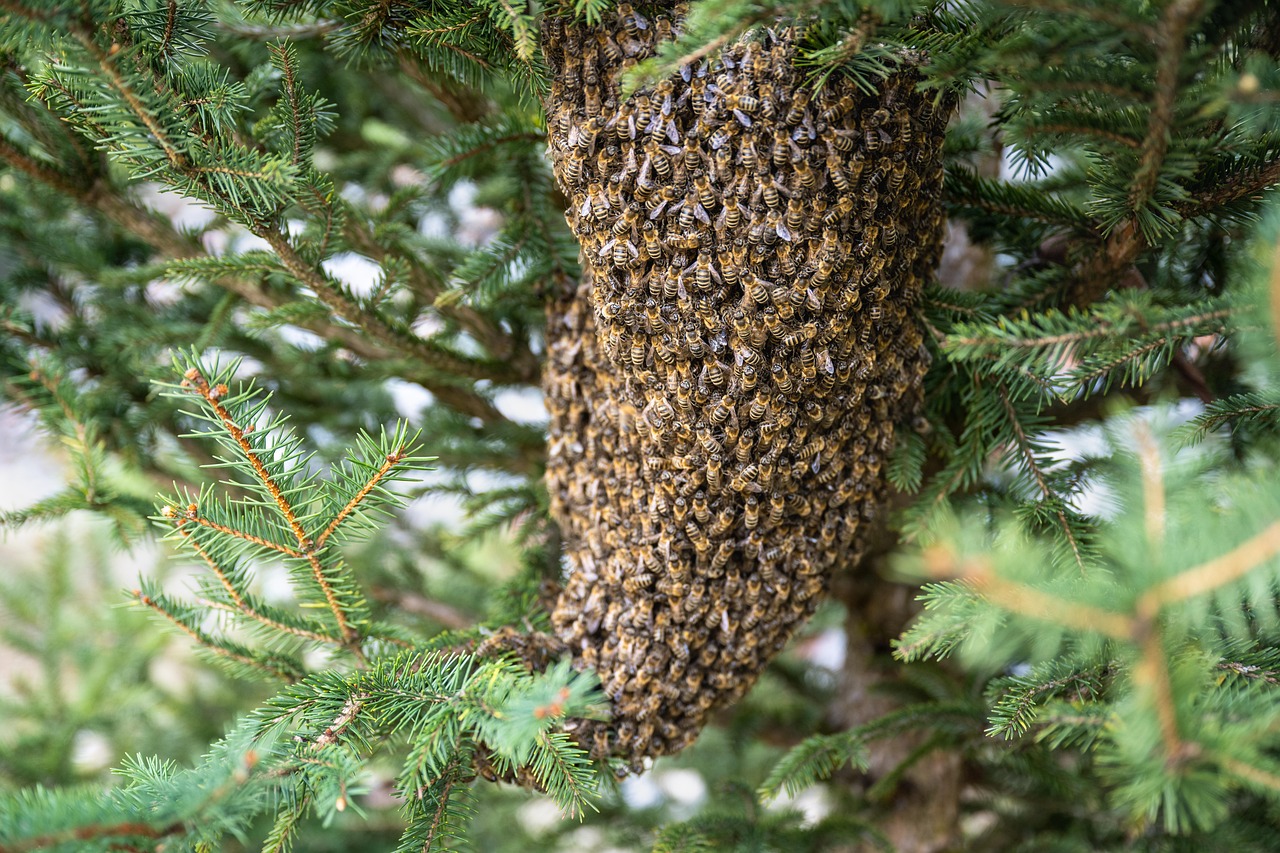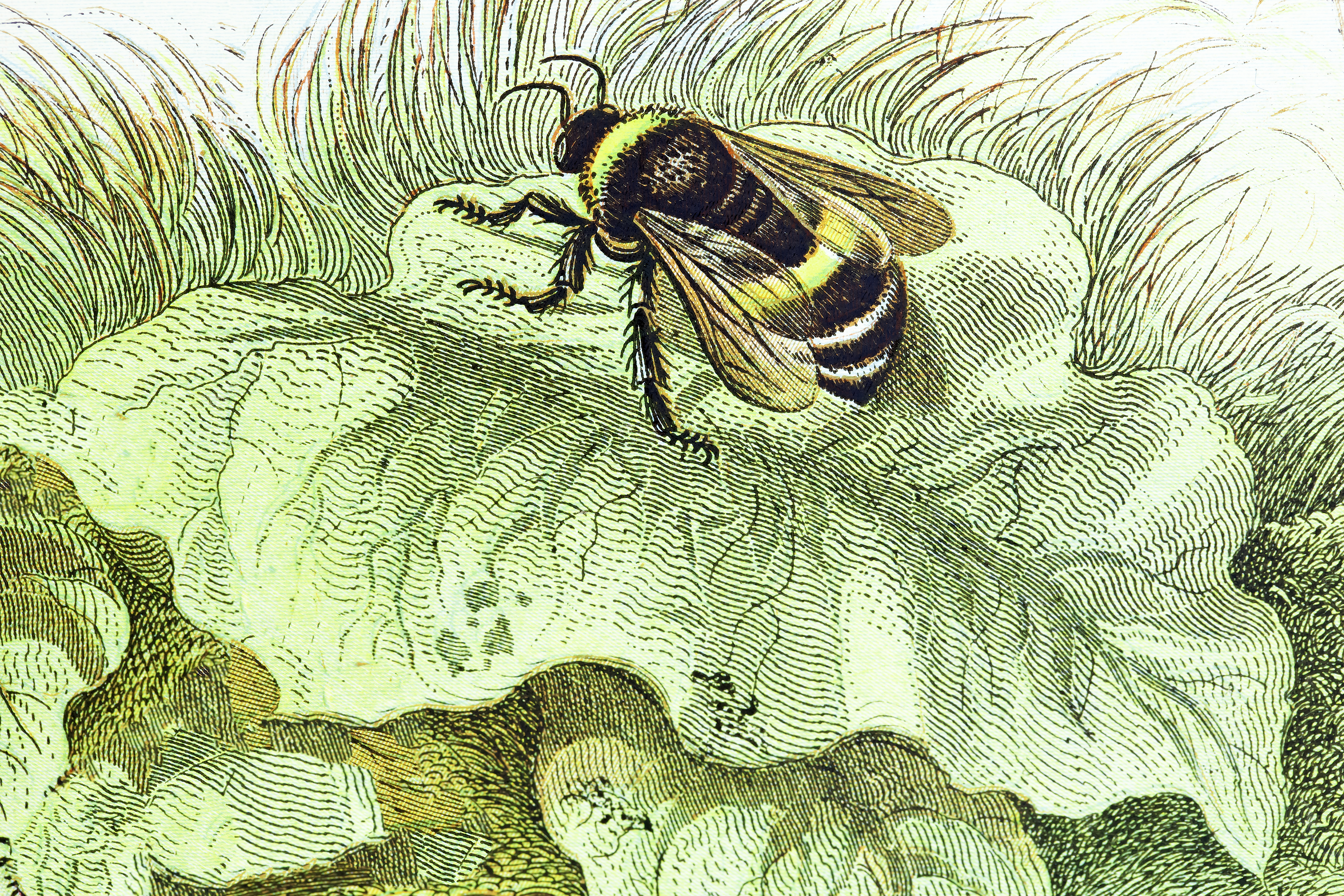It's a cruel summer to be a bee with up to 80% of swarms dying if they cannot find a safe place to settle — but here is how you can help
Currently, swarms of bees are taking flight to search for new homes and up to 80% of these swarms will perish if they cannot find a safe place to settle, but we can all help, says the BBKA.


’Tis the season when the air hums with both promise and peril, a fact of which most of us are not fully aware. Currently, swarms of bees are taking flight to search for new homes and up to 80% of these swarms will perish if they cannot find a safe place to settle, but we can all help, says the British Beekepers Association (BBKA), which has launched its annual Swarm Savers campaign.
‘Members of the public have a key role to play in alerting local beekeepers to swarms that are on the move,’ explains Niall Gallagher of the British Pest Control Association (BPCA), as ‘thousands of trained beekeepers across the country are on stand-by to safely rescue and rehome honeybee swarms… Some of our members have specialised skills in removing nests from tricky places such as chimneys and wall cavities.’
He continues: ‘Bees are a vital part of our ecosystem, but sometimes a swarm of honey bees can be mistaken for a wasp infestation. All BPCA members will protect pollinators where we can, and will often work with members of the BBKA to ensure honeybees are safely relocated… In the UK, 25% of all bee types are endangered, so pest controllers do not apply treatments unless there is a serious threat to human life.’

If you spot a swarm of bees, try not to be alarmed by the noise and size of it, advises the BPCA, as if undisturbed, bees are fairly docile and only wish to protect their queen. Keep your distance and try to identify the species by using BBKA's website, or by sending a photograph to the BBKA. However, take note, BBKA beekeepers can only assist honeybee swarms; they cannot help with other bee species — of which there are more than 250 in the UK.
‘There’s something truly magical about witnessing a honey bee swarm,’ enthuses BBKA chair Diane Drinkwater. ‘It’s how a colony reproduces; a natural marvel where thousands of bees work together to protect their queen and find a new home. But without help, many never make it. We know many people are fascinated or concerned by swarms and by knowing what to do, everyone can help honeybees and make sure they’re around for generations to come.’
On the subject of plagues of insects, try not to be alarmed if you see a horde of ants flying in your direction, says the BPCA. Flying-ant mating season its almost upon us. ‘It’s not entirely true that ants only fly for one day each year, but the mating season does tend to be just a few days in July or August,’ says Gallagher. ‘Mating takes place in the air during the swarming nuptial flight, but the ants will disappear within a few hours and are best left alone.’ He adds that males die shortly after mating; the queens chew off their wings and find a nest site for winter. Just try not to attract them into your house.
Exquisite houses, the beauty of Nature, and how to get the most from your life, straight to your inbox.
Annunciata is director of contemporary art gallery TIN MAN ART and an award-winning journalist specialising in art, culture and property. Previously, she was Country Life’s News & Property Editor. Before that, she worked at The Sunday Times Travel Magazine, researched for a historical biographer and co-founded a literary, art and music festival in Oxfordshire. Lancashire-born, she lives in Hampshire with a husband, two daughters and a mischievous pug.
